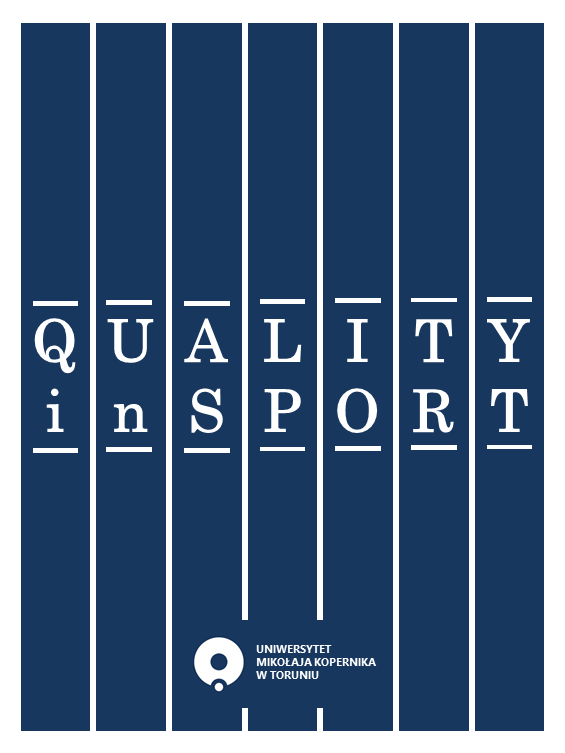Artificial Intelligence in medicine: Potential and Application Possibilities - Comprehensive literature review
DOI:
https://doi.org/10.12775/QS.2025.41.60222Keywords
AI, medicine, futureAbstract
Artificial intelligence (AI) is transforming modern medicine by enhancing diagnostic accuracy, personalizing treatment, and streamlining clinical workflows. This literature review explores AI's potential and practical applications across five key medical domains: psychiatry, ophthalmology, radiology, emergency medicine, and dermatology. In psychiatry, generative AI models support mental health through personalized interventions and symptom tracking, while in ophthalmology, multimodal learning improves early detection of eye diseases. Radiology benefits from AI-driven imaging analysis, increasing efficiency and diagnostic precision across various specialties, including neuroradiology and breast imaging. Emergency medicine sees promise in AI’s integration for rapid triage and decision support, though legal and interpretability challenges persist. In dermatology, AI enhances both aesthetic evaluations and diagnostic accuracy through advanced image recognition. Despite significant benefits, issues such as algorithmic bias, lack of transparency, and legal responsibility demand careful consideration. The review underscores the need for responsible implementation of AI systems that prioritize augmentation of human expertise rather than replacement.
References
Xian, X., Chang, A., Xiang, Y.-T., & Liu, M. T. (2024). Debate and Dilemmas Regarding Generative AI in Mental Health Care: Scoping Review. Interactive Journal of Medical Research, 13, e53672. https://doi.org/10.2196/53672
Artsi, Y., Sorin, V., Glicksberg, B. S., Nadkarni, G. N., & Klang, E. (2024). Advancing Clinical Practice: The Potential of Multimodal Technology in Modern Medicine. Journal of Clinical Medicine, 13(20). https://doi.org/10.3390/jcm13206246
Shevtsova, D., Ahmed, A., Boot, I. W. A., Sanges, C., Hudecek, M., Jacobs, J. J. L., Hort, S., & Vrijhoef, H. J. M. (2024). Trust in and Acceptance of Artificial Intelligence Applications in Medicine: Mixed Methods Study. JMIR Human Factors, 11, e47031. https://doi.org/10.2196/47031
Bhandari, A. (2024). Revolutionizing Radiology With Artificial Intelligence. Cureus, 16(10), e72646. https://doi.org/10.7759/cureus.72646
Sun, J., Dong, Q. X., Wang, S. W., Zheng, Y. B., Liu, X. X., Lu, T. S., Yuan, K., Shi, J., Hu, B., Lu, L., & Han, Y. (2023). Artificial intelligence in psychiatry research, diagnosis, and therapy. Asian Journal of Psychiatry, 87. https://doi.org/10.1016/J.AJP.2023.103705
Pham, K. T., Nabizadeh, A., & Selek, S. (2022). Artificial Intelligence and Chatbots in Psychiatry. The Psychiatric Quarterly, 93(1), 249–253. https://doi.org/10.1007/S11126-022-09973-8
Boucher, E. M., Harake, N. R., Ward, H. E., Stoeckl, S. E., Vargas, J., Minkel, J., Parks, A. C., & Zilca, R. (2021). Artificially intelligent chatbots in digital mental health interventions: a review. Expert Review of Medical Devices, 18(sup1), 37–49. https://doi.org/10.1080/17434440.2021.2013200
Wang, S., He, X., Jian, Z., Li, J., Xu, C., Chen, Y., Liu, Y., Chen, H., Huang, C., Hu, J., & Liu, Z. (2024). Advances and prospects of multi-modal ophthalmic artificial intelligence based on deep learning: a review. Eye and Vision (London, England), 11(1), 38. https://doi.org/10.1186/s40662-024-00405-1
Hosseini, F., Asadi, F., Rabiei, R., Kiani, F., & Harari, R. E. (2024). Applications of artificial intelligence in diagnosis of uncommon cystoid macular edema using optical coherence tomography imaging: A systematic review. Survey of Ophthalmology, 69(6), 937–944. https://doi.org/10.1016/j.survophthal.2024.06.005
Swaminathan, U., & Daigavane, S. (2024). Unveiling the Potential: A Comprehensive Review of Artificial Intelligence Applications in Ophthalmology and Future Prospects. Cureus, 16(6), e61826. https://doi.org/10.7759/cureus.61826
Chenais, G., Lagarde, E., & Gil-Jardiné, C. (2023). Artificial Intelligence in Emergency Medicine: Viewpoint of Current Applications and Foreseeable Opportunities and Challenges. Journal of Medical Internet Research, 25. https://doi.org/10.2196/40031
Langlotz, C. P. (2023). The Future of AI and Informatics in Radiology: 10 Predictions. Radiology, 309(1). https://doi.org/10.1148/RADIOL.231114
Scheiner, J., & Berliner, L. (2024). Avoiding missed opportunities in AI for radiology. International Journal of Computer Assisted Radiology and Surgery, 19(12). https://doi.org/10.1007/S11548-024-03295-9
Petrella, R. J. (2024). The AI Future of Emergency Medicine. Annals of Emergency Medicine, 84(2), 139–153. https://doi.org/10.1016/J.ANNEMERGMED.2024.01.031
Okada, Y., Ning, Y., & Ong, M. E. H. (2023). Explainable artificial intelligence in emergency medicine: an overview. Clinical and Experimental Emergency Medicine, 10(4), 354–362. https://doi.org/10.15441/CEEM.23.145
Ahun, E., Demir, A., Yiğit, Y., Tulgar, Y. K., Doğan, M., Thomas, D. T., & Tulgar, S. (2023). Perceptions and concerns of emergency medicine practitioners about artificial intelligence in emergency triage management during the pandemic: a national survey-based study. Frontiers in Public Health, 11. https://doi.org/10.3389/FPUBH.2023.1285390
Vearrier, L., Derse, A. R., Basford, J. B., Larkin, G. L., & Moskop, J. C. (2022). Artificial Intelligence in Emergency Medicine: Benefits, Risks, and Recommendations. The Journal of Emergency Medicine, 62(4), 492–499. https://doi.org/10.1016/J.JEMERMED.2022.01.001
Wongvibulsin, S., Yan, M. J., Pahalyants, V., Murphy, W., Daneshjou, R., & Rotemberg, V. (2024). Current State of Dermatology Mobile Applications With Artificial Intelligence Features. JAMA Dermatology, 160(6), 646–650. https://doi.org/10.1001/JAMADERMATOL.2024.0468
Kania, B., Montecinos, K., & Goldberg, D. J. (2024). Artificial intelligence in cosmetic dermatology. Journal of Cosmetic Dermatology, 23(10). https://doi.org/10.1111/JOCD.16538
Breslavets, M., Breslavets, D., & Lapa, T. (2024). Advancing dermatology education with AI-generated images. Dermatology Online Journal, 30(1). https://doi.org/10.5070/D330163299
Haykal, D., Garibyan, L., Flament, F., & Cartier, H. (2024). Hybrid cosmetic dermatology: AI generated horizon. Skin Research and Technology : Official Journal of International Society for Bioengineering and the Skin (ISBS) [and] International Society for Digital Imaging of Skin (ISDIS) [and] International Society for Skin Imaging (ISSI), 30(5). https://doi.org/10.1111/SRT.13721
Patel, S., Wang, J. v., Motaparthi, K., & Lee, J. B. (2021). Artificial intelligence in dermatology for the clinician. Clinics in Dermatology, 39(4), 667–672. https://doi.org/10.1016/J.CLINDERMATOL.2021.03.012
Downloads
Published
How to Cite
Issue
Section
License
Copyright (c) 2025 Michał Kotowicz, Magdalena Bieniak-Pentchev, Maria Koczkodaj

This work is licensed under a Creative Commons Attribution-NonCommercial-ShareAlike 4.0 International License.
Stats
Number of views and downloads: 551
Number of citations: 0



